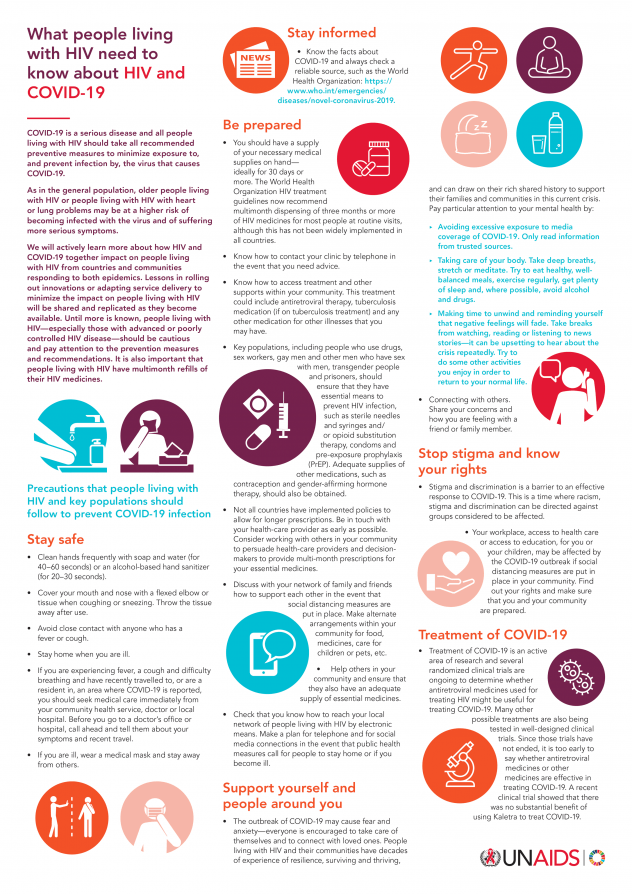COVID-19 is a serious disease and all people living with HIV should take all recommended preventive measures to minimize exposure to, and prevent infection by, the virus that causes COVID-19. As in the general population, older people living with HIV or people living with HIV with heart or lung problems may be at a higher risk of becoming infected with the virus and of suffering more serious symptoms. We will actively learn more about how HIV and COVID-19 together impact on people living with HIV from countries and communities responding to both epidemics.
Lessons in rolling out innovations or adapting service delivery to minimize the impact on people living with HIV will be shared and replicated as they become available. Until more is known, people living with HIV—especially those with advanced or poorly controlled HIV disease—should be cautious and pay attention to the prevention measures and recommendations. It is also important that people living with HIV have multi-month refills of their HIV medicines.
Precautions that people living with HIV and key populations should follow to prevent COVID-19 infection
Stay safe
Clean hands frequently with soap and water (for 40–60 seconds) or an alcohol based hand sanitizer (for 20–30 seconds).
Cover your mouth and nose with a flexed elbow or tissue when coughing or sneezing. Throw the tissue away after use.
Avoid close contact with anyone who has a fever or cough.
Stay home when you are ill.
If you are experiencing fever, a cough and difficulty breathing and have recently travelled to, or are a resident in, an area where COVID-19 is reported, you should seek medical care immediately from your community health service, doctor or local hospital. Before you go to a doctor’s office or hospital, call ahead and tell them about your symptoms and recent travel.
If you are ill, wear a medical mask and stay away from others.

